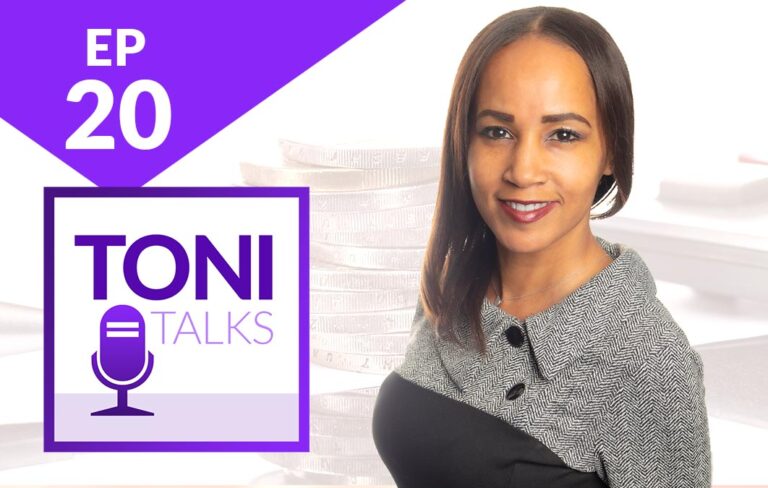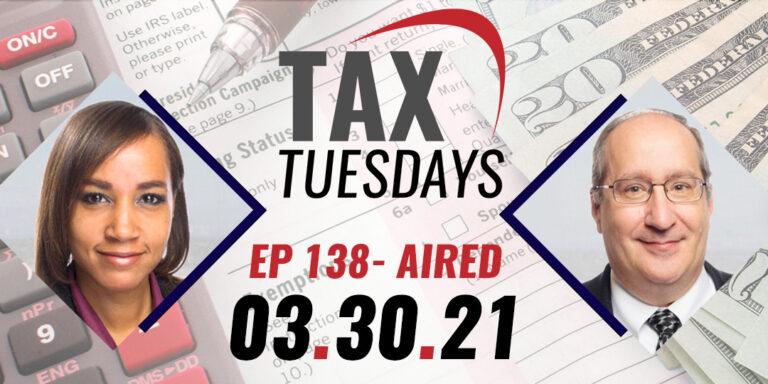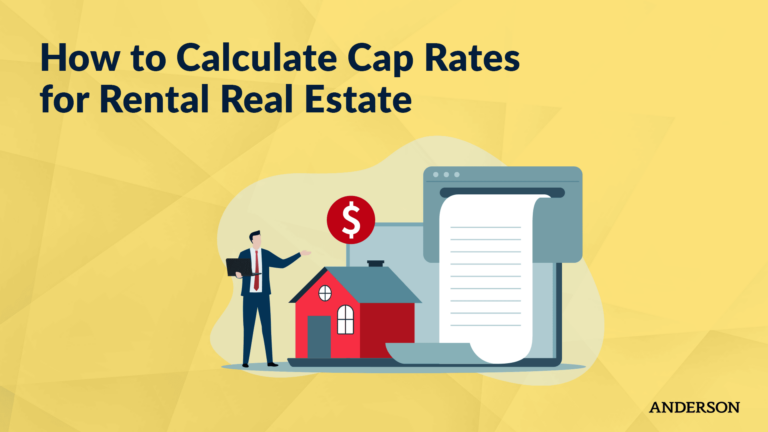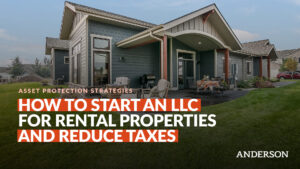What are all the ways to own a property?
In this episode of Toni Talks, host Toni Covey Director Of Professional Services, covers everything you need to know about Real Property Ownership.
When we’re talking about investing in property, the first thing that comes to mind is the buy-and-hold strategy.
Let’s start with where everyone starts: What are your options to purchase a property?
Property Ownership Options?
There’s a lot of different ways you can own a property.
In most jurisdictions, it comes down to 3 different options.
If we’re talking about your standard married couple, they’re buying a property together in most cases. How do we title that? Or if you’re buying a property, an investment property with your siblings, or something similar, how should that be handled?
Looking at the first one, when you buy a property with another person, you’re not drawing a chalk line down the middle of the house and saying, “You get the rent from this half.”
So, if it’s not the classic chalk line or tape across the room that fairly decides terms and conditions, how’s this thing working?
All tenants have joint rights to access and get the rent regardless of how you decide to chalk it up.
And then there’s a tenancy, occupying the land.
If you have two people who own a given property, both as tenants in common, then that means that their half ordinarily goes to their family when one of them dies. But with joint tenancy, that half automatically switches over to the other person (tenant).
The last option is one that’s not available in every state. It’s only available to married couples in limited states, and that’s tenants in the entirety, tenants by the entirety, or tenants by entireties.
This one’s unique because it’s a form of joint ownership with a La Croix of asset protections. For that reason, I’m not in the full flavor of it. It creates what is called legal fiction where if one of those two people in the marriage gets sued, the courts will pretend that the non-offending spouse owns the property 100%.
So you can get some weird scenarios where the husband’s been sued for one thing, and the wife has been sued for a different thing. Both are trying to foreclose on the house Neither one of them can because, in the husband’s case, they say the wife is the one that owns it a hundred percent.
And in the wife’s case, they say the husband owns it a hundred percent. This creates some interesting scenarios that can come up. It can be potent, but it doesn’t protect against the property itself.
For instance, if you have a slip and fall on the property or you’ve got contractors that are working on a flip for you, and they get injured on the property, it doesn’t do much there because you’re both owners of that property. You’re both going to be equally responsible.
From an asset protection standpoint, those are some very different real estate scenarios. However, we can also own real estate in a business entity.
Owning Real Estate As a Business Entity
Owning real estate as a business entity ensures a much higher level of asset protection. If we look to an LLC as our first go-to structure, this form of asset protection is generally good for several different business classes.
The two main things we often see with this structure is you’re either going to hold the property long term or short term. The short term holds usually indicate you’re flipping the property. You’ve purchased the property with the intent to sell it. Whereas with the long-term, you’re going to be either renting the property out, or you’re going to be operating a business inside of that real estate.
Now, when you own the property long-term, that’s going to result in depreciation. When you’re flipping it, it’s just inventory. With inventory, there’s nothing to depreciate. It’s not a capital asset. Holding property long-term is what makes it a capital asset—thus making the property depreciable, whether 27 and a half years, 39 for residential, 39 for commercial.
Generally, we don’t like to have that kind of income or that kind of asset in a corporation. Because as a rule-of-thumb, should we want to take that asset out, we might run into some tax consequences.
That’s why we like that LLC, which might be disregarded or perhaps in a partnership that does flow through to our personal return. Giving us the tax benefits and a little more flexibility. If we want to maybe refinance or something like that as well, we can.
Also, when it comes to how we’re going to deed the real estate into an LLC, it’s either going to be disregarded or owned by us individually—either directly or indirectly. I say indirectly because you might have another LLC that owns that rental LLC, and you want to be observed as a legal entity in the state where the property is located.
For example, say two individuals own a holding LLC, and both are owners of a Wyoming holding LLC. This is a created partnership, and as a tax professional, I much prefer anything which might be considered a joint venture. Unless you’ve incorporated it into a joint venture, put it in an LLC, the joint venture doesn’t have to file a 1065 partnership tax return.
Both partners would just be reporting their 50% allocation of income on their individual tax return but what 1065 will do is it’s going to be an informational return to produce a K1 to allocate that income to both partners.
Now everybody’s in the loop. The IRS is in the loop, both partners are in the loop, and there is not much room for error. This works for a traditional long-term hold, but what if you’re not doing a traditional rental? What if you’re doing what would be defined by the IRS as short-term rentals?
Short Term Rentals?
The short-term rental might be a common example in the last couple of years. Airbnbs and things of that nature, where we are only renting less than seven days, or perhaps under 30 days, and we’re providing some substantial services. At the same time, that might be ordinary income, subject to employment tax, as opposed to your traditional rental that maybe you have a tenant in there for a whole year, that’s just going to be passive income.
We might still have that in an LLC for asset protection in a situation where we have these short-term rentals. You’ll have a long-term lease or a master lease with maybe a C corporation. And that will be for perhaps a year. Now your C corporation is the one that interacts with those coming in for Airbnb. So if I want to do a three-day vacation, somewhere in an Airbnb, a house down in Florida, let’s say I interact with somebody’s C corporation that keeps my three days of active income at the seed level.
Well, that C corporation will still have the long-term lease for passive income on the first of the firm through the schedule E.
I also like to think of it as another form of asset protection because we’ve not only isolated the risk of the property, such as a slip and fall or risks from renovating the property, but we’ve also isolated the business side of the property.
We’ve isolated the risk of a tenant not paying or staying too long and isolated that over in that corporation.
Now, if we’re talking about maybe flipping real estate, we might want to go ahead and do that in a corporate entity. Especially if we’re doing multiple deals, we’d want to do another combination.
You can seldom go wrong with starting with an LLC as a base for your business. You’ve got your LLC to hold a property, but then that LLC might be disregarded, owned by a corporation- be it C or S.
When we’re flipping property, we aren’t holding that house for long-term investment use, like we were just talking about for rentals. If we’re flipping, it’s considered inventory. This means when we sell it, it’s going to be subject to ordinary taxes, and you might get something called dealer status where the IRS will hit you with employment taxes as well.
One of the things that I do like to talk about as well when it comes to ownership of the real estate, as it relates to flipping, is if you’re doing multiple deals a year, you can end up being deemed as what’s referred to as a dealer status for IRS purposes.
That status comes with a whole host of things that you’re not going to love. Dealer status is subject to self-employment tax. You’re no longer allowed to report and sell real estate on installment. This means the depreciation is gone, and the 1030 exchange is gone. So there are many things that you don’t want to get involved with when being deemed a dealer.
But a corporation is not going to be deemed as a dealer.
A dealer status is not determined at the corporate level. So even though the S corporation is flowing through, it’s going to flow through to you personally. The S corporation is not going to be determined to be a dealer. And one of the beautiful things about S corporations is that flow-through income to you is not sub.
I also have to mention that when it comes to S corporations, you are required to pay yourself a reasonable salary.
What is a reasonable salary? There’s not a definitive answer because it always comes down to, it depends. It depends on the cash flow and the corporation. It depends on factors such as wages in that area. It depends on how daring your CPA’s willing to be.
The IRS does not define reasonable when it comes to what is a reasonable salary. That is something that you have to look at and determine on a case by case basis. In general, when we’re looking at ownership of the real estate, you’ve got tenants in common, joint tenancy, tenancy by the entirety. Whatever variation of the way each state wants to say that, well, at least the ones that observe it or you’re owning the real estate in an entity which doesn’t have to change who owns it.
You own the real estate in an LLC, and any individual can then own that LLC. We can still end up with the same result. However, we’ve now added a layer of asset protection with the addition of corporations.
Owning Real Estate Personally Or Through An Entity?
There’s a common misconception that you always need to have some sort of really complicated thing with your real estate, like a life estate, to make sure that it can pass through without going through probate.
When in truth, you can have your property owned in an asset protection entity or a business entity like a corporation or an LLC, preferably an LLC for real estate in most circumstances, and still have it skip over that probate process.
The easiest way to do that is with a living trust. Instead of that property being owned directly by the living trust, that property is owned by an entity, which is then owned hopefully by a holding company in Wyoming, or another state with really great asset protection rules, which is then owned by the trust.
And I think we’d be remiss if we didn’t talk a little bit about the non-ownership of real estate. I’m talking about real estate that you’ve invested in through a tax-deferred or tax-exempt vehicle. If I’m purchasing real estate in my qualified retirement plan or IRA, that is now an asset of the plan.
You have to use the plan assets to purchase the property, and you can not benefit personally from the property. If you take those funds out of the plan, it will be taxable income to you. Unless, of course, it was in a Roth.
You’re not supposed to be still living in the property, utilizing the property. You’re not going to rent the property back to yourself. Doing things like that needs to be a charitable purpose now, for the use of that property.
Or maybe the charity is going to sell it and utilize the funds for a charitable purpose. So, I think when we’re talking about real estate or ownership of the real estate, it is worth it to mention that when you’re maneuvering with the real estate, we have to keep in mind that there are some types of ownerships where you own it, but you don’t, if that makes sense.
The Takeaway
Overall, an important thing to keep in mind about owning real estate is having multiple structures in place won’t hurt you. So long as you do it correctly, you can benefit from the tax side and the asset protection side.
Well, I want to thank you all for joining us. I hope you found this helpful.
If you’d like to discuss your real estate structures or any investment questions you may have in greater detail, I encourage you to schedule a complimentary Strategy Session today. On the call, you and the Advisor will discuss your current investing methods and future goals, then build out a custom entity structure to lower your tax liability and streamline your business.
You can schedule online or by calling 888.871.8535.
Free Strategy Session with an Anderson Advisor
Receive a detailed risk assessment to assist in lowering problem areas that could wipe out all of your assets with one wrong move. Speak with an Anderson Professional Advisor to get your FREE Strategy Session.
Limited-Time Offer: ($750 value.)















